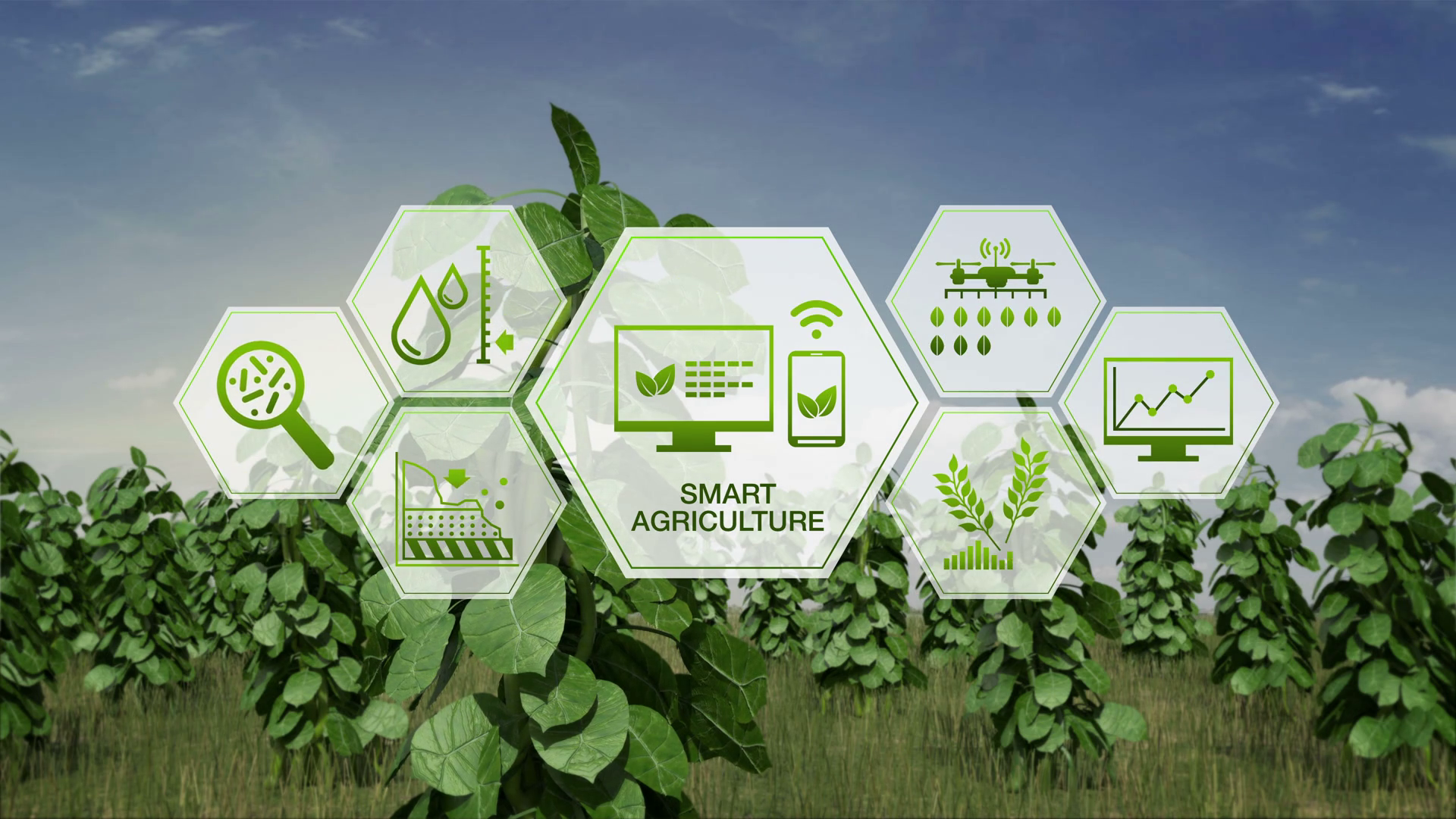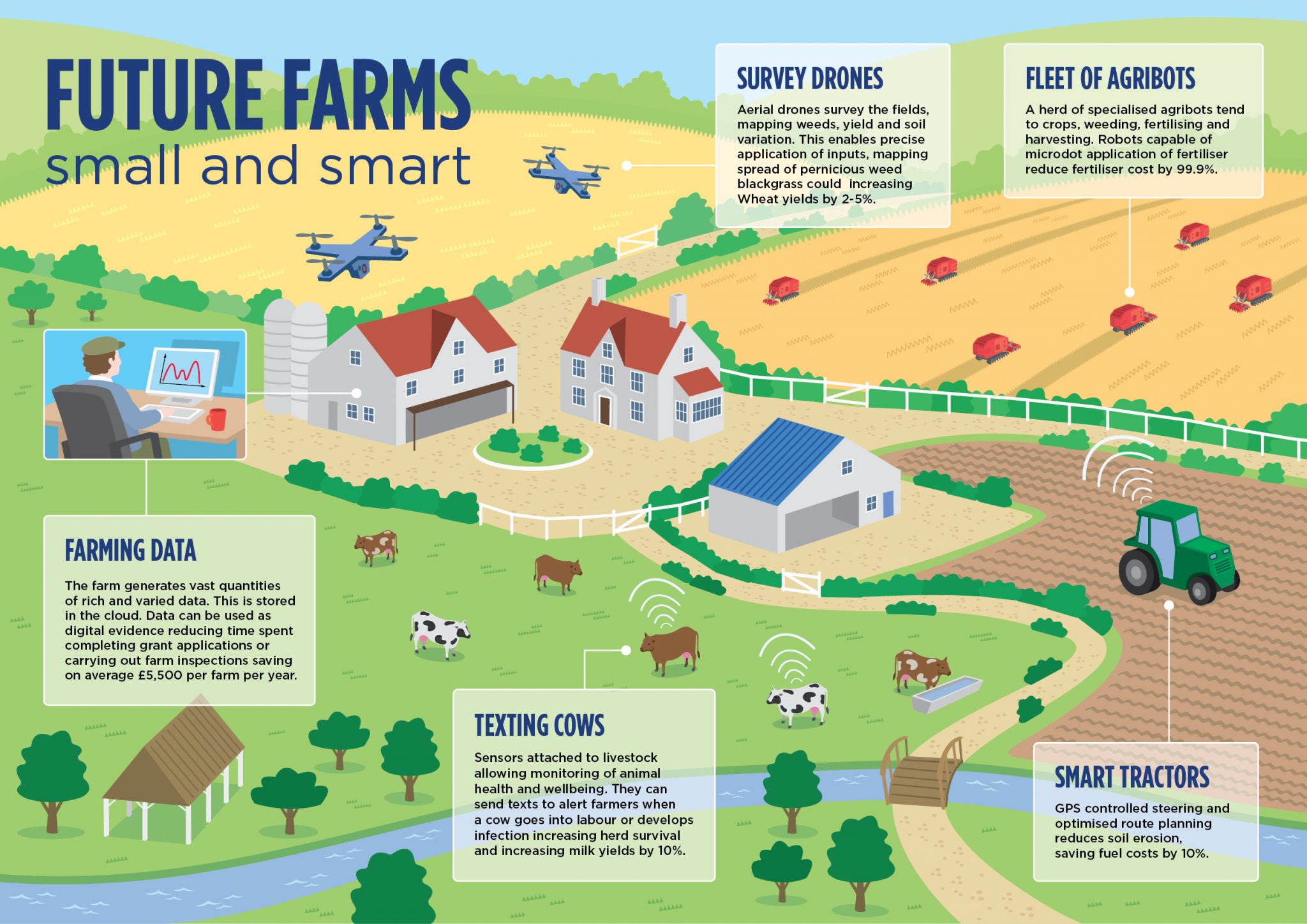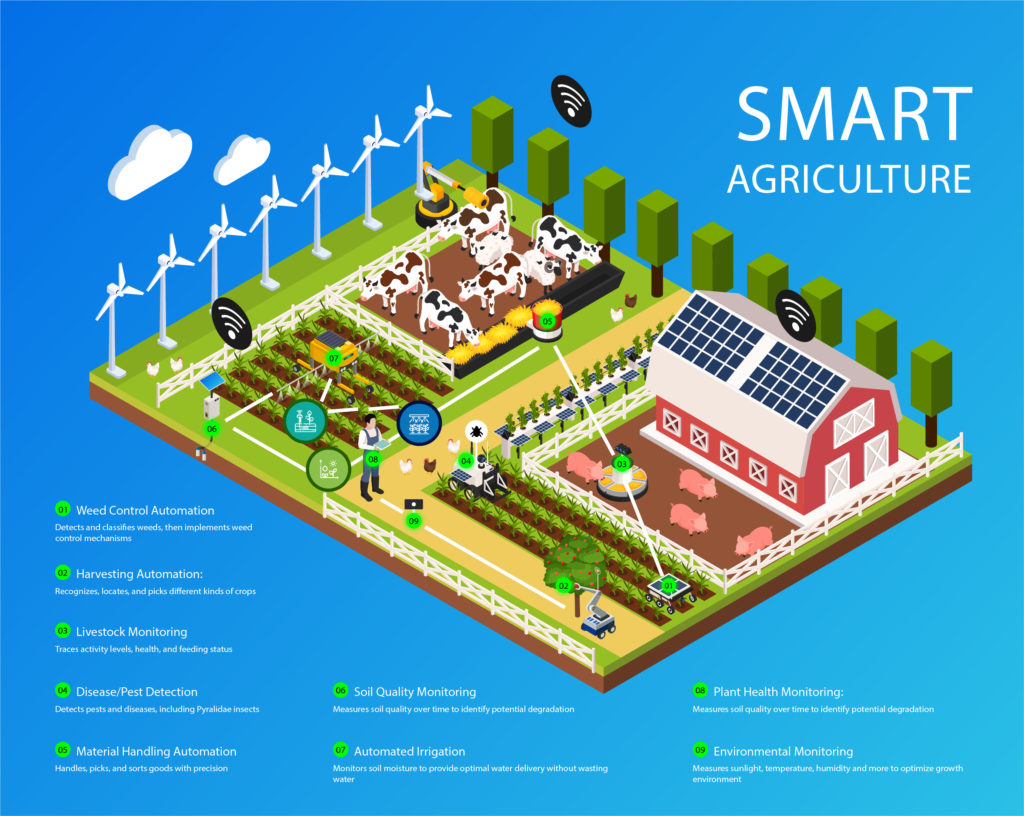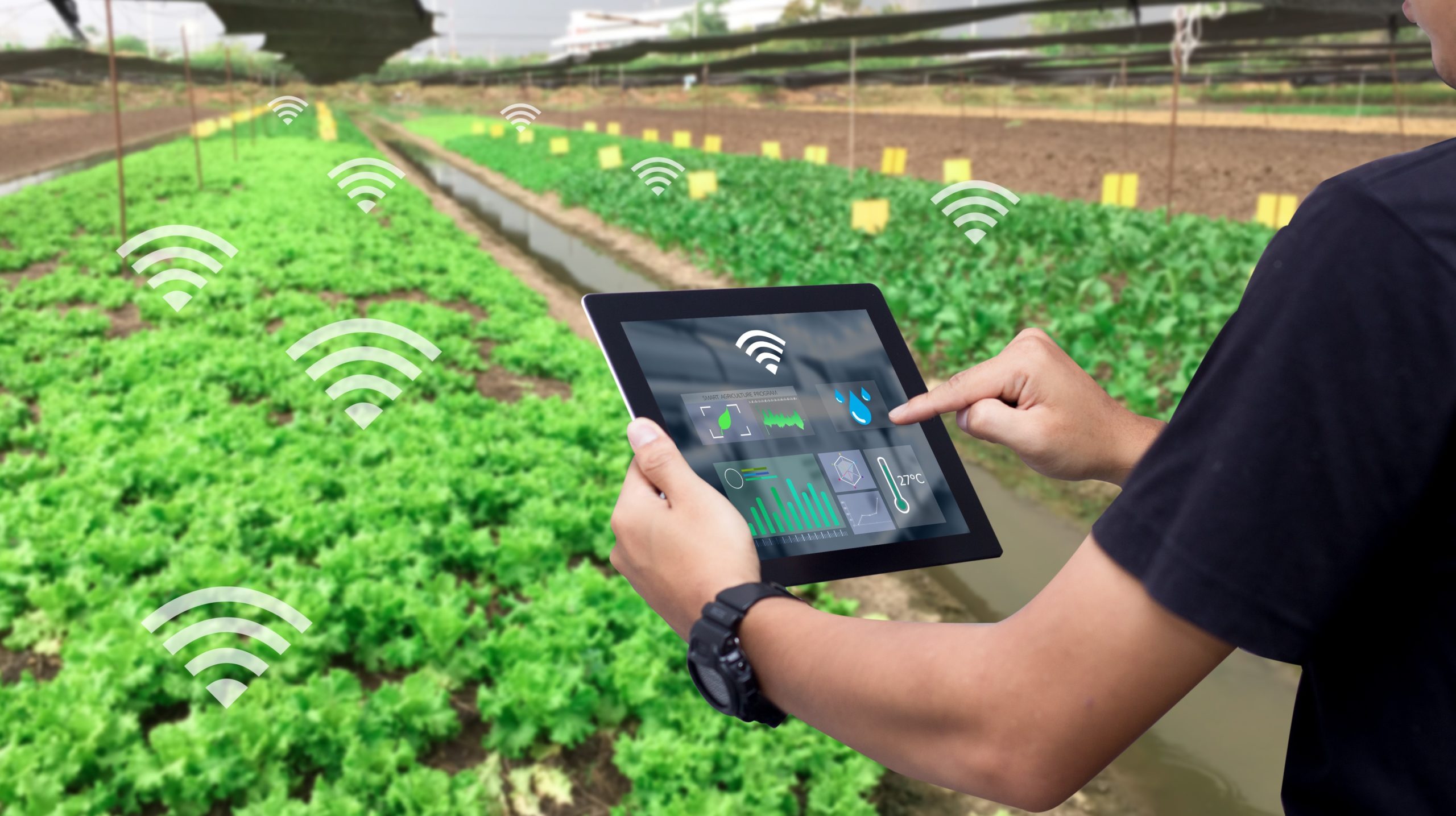
Artificial Intelligence (AI) in Smart Farming Practices
The agricultural industry is facing a number of challenges, including climate change, rising input costs, and a shrinking workforce. Artificial intelligence (AI) offers the potential to help farmers address these challenges and improve their bottom lines.
AI-powered technologies can be used to automate tasks, improve decision-making, and increase yields. Some of the specific ways that AI is being used in agriculture include:
- Automating tasks: AI-powered robots can be used to perform tasks such as weeding, harvesting, and milking cows. This can help farmers save time and money, and it can also reduce the risk of injury.
- Improving decision-making: AI can be used to analyze data and provide farmers with insights that can help them make better decisions about everything from crop rotation to pest management. This can lead to improved yields and profitability.
- Increasing yields: AI can be used to develop new crop varieties that are resistant to pests and diseases, and that can produce higher yields. This can help farmers to adapt to climate change and to feed a growing population.
In addition to these specific applications, AI has the potential to transform agriculture in a number of other ways. For example, AI-powered drones can be used to monitor crops and detect pests, and AI-powered sensors can be used to collect data on soil conditions and weather patterns. This data can be used to develop more targeted and effective farming practices, which can lead to improved yields and sustainability.
The use of AI in agriculture is still in its early stages, but it has the potential to revolutionize the industry. By automating tasks, improving decision-making, and increasing yields, AI can help farmers to become more efficient, more profitable, and more sustainable.

Benefits of AI in Smart Farming
There are many benefits to using AI in smart farming practices. Some of the key benefits include:
- Improved yields: AI can help farmers to increase yields by automating tasks, improving decision-making, and developing new crop varieties.
- Reduced costs: AI can help farmers to reduce costs by automating tasks, improving efficiency, and using resources more effectively.
- Increased sustainability: AI can help farmers to become more sustainable by using resources more efficiently, reducing their carbon footprint, and adapting to climate change.
- Improved animal welfare: AI can be used to monitor livestock and detect health problems early, which can help to improve animal welfare.
- Increased farmer satisfaction: AI can help farmers to be more efficient and profitable, which can lead to increased satisfaction.

Challenges of AI in Smart Farming
There are also some challenges associated with the use of AI in smart farming practices. Some of the key challenges include:
- Cost: AI-powered technologies can be expensive, which can make them inaccessible to some farmers.
- Data privacy: Farmers need to be careful about how they collect and use data, as they need to protect the privacy of their customers and employees.
- Technical skills: Farmers need to have the technical skills to use AI-powered technologies effectively.
- Regulations: The use of AI in agriculture is still relatively new, so there are few regulations in place. This can make it difficult for farmers to understand the legal implications of using AI.

Conclusion
The use of AI in smart farming practices is still in its early stages, but it has the potential to revolutionize the industry. By automating tasks, improving decision-making, and increasing yields, AI can help farmers to become more efficient, more profitable, and more sustainable. However, there are also some challenges associated with the use of AI in agriculture, such as cost, data privacy, technical skills, and regulations. As the use of AI in agriculture continues to grow, it will be important to address these challenges in order to ensure that AI is used in a way that benefits farmers and the environment.

Additional Resources

- The Future of Agriculture with Artificial Intelligence
- How Artificial Intelligence is Transforming Agriculture
- AI in Agriculture: A Guide for Farmers
- The Impact of Artificial Intelligence on Agriculture
Post a Comment